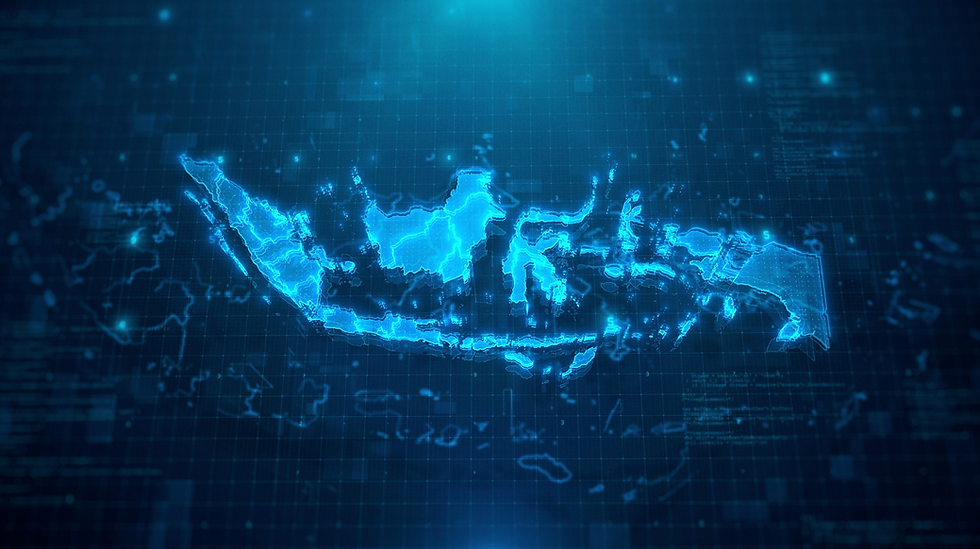The Role of AI in Shaping Indonesia's Digital Future
- febryan rachim
- Sep 14, 2024
- 2 min read
Indonesia, the largest economy in Southeast Asia, is on a mission to become a global digital powerhouse by 2045. At the heart of this ambitious goal lies the transformative power of Artificial Intelligence (AI). As the country rapidly embraces digital transformation, AI is emerging as a key driver of innovation and economic growth across various industries. This article explores how AI shapes Indonesia's digital landscape and paves the way for a technologically advanced future.

The Rise of AI in Indonesia's Digital Ecosystem
Indonesia's digital ecosystem has been growing at an unprecedented rate, with the government actively promoting the adoption of emerging technologies. AI, in particular, has gained significant traction due to its potential to revolutionize industries and improve the quality of life for millions of Indonesians.
Key Areas of AI Application in Indonesia
E-commerce and Retail: AI-powered recommendation engines and chatbots are enhancing customer experiences in Indonesia's booming e-commerce sector.
Healthcare: Telemedicine platforms are leveraging AI to provide remote diagnoses and improve healthcare accessibility in rural areas.
Agriculture: Smart farming solutions using AI and IoT are helping Indonesian farmers optimize crop yields and reduce resource wastage.
Financial Services: AI algorithms are being employed for credit scoring, fraud detection, and personalized financial advice in the fintech sector.
Transportation and Logistics: AI-driven route optimization and demand forecasting are improving efficiency in Indonesia's vast logistics network.
Government Initiatives Driving AI Adoption
The Indonesian government has recognized the potential of AI to accelerate the country's digital transformation. Several key initiatives have been launched to foster AI development and adoption:
National AI Strategy: The government has outlined a comprehensive plan to develop AI capabilities and integrate them into various sectors of the economy.
Digital Talent Development: Programs aimed at upskilling the workforce in AI and related technologies are being implemented to bridge the skills gap.
Regulatory Framework: Efforts are underway to create a conducive regulatory environment that encourages AI innovation while addressing ethical concerns.

Challenges and Opportunities
While the potential of AI in Indonesia is immense, several challenges need to be addressed:
Infrastructure Development: Improving digital infrastructure, especially in remote areas, is crucial for widespread AI adoption.
Data Privacy and Security: Establishing robust data protection measures is essential to build trust in AI systems.
Ethical AI Development: Ensuring that AI solutions are developed and deployed ethically is a priority for sustainable growth.
Despite these challenges, the opportunities for AI in Indonesia are vast. As the country continues its digital transformation journey, AI is expected to play a pivotal role in:
Boosting economic productivity
Enhancing public services
Addressing social challenges in education, healthcare, and environmental sustainability
The Future of AI in Indonesia
As Indonesia progresses towards its vision of becoming a digital powerhouse by 2045, AI will undoubtedly be at the forefront of this transformation. The continued collaboration between government, industry, and academia will be crucial in realizing the full potential of AI and securing Indonesia's position as a leader in the global digital economy.
By embracing AI and fostering a culture of innovation, Indonesia is well-positioned to leverage this transformative technology to drive sustainable growth, improve the lives of its citizens, and emerge as a key player in the global AI landscape.

.png)

